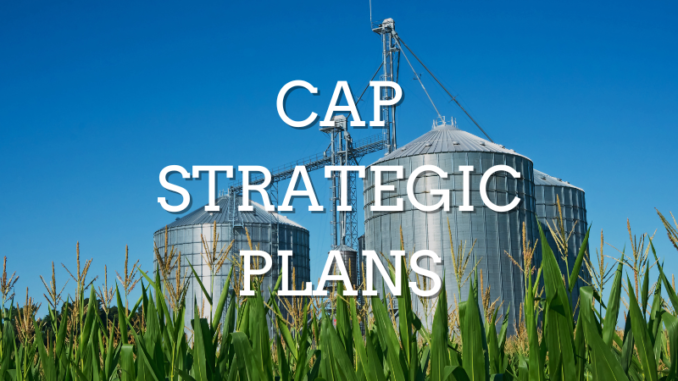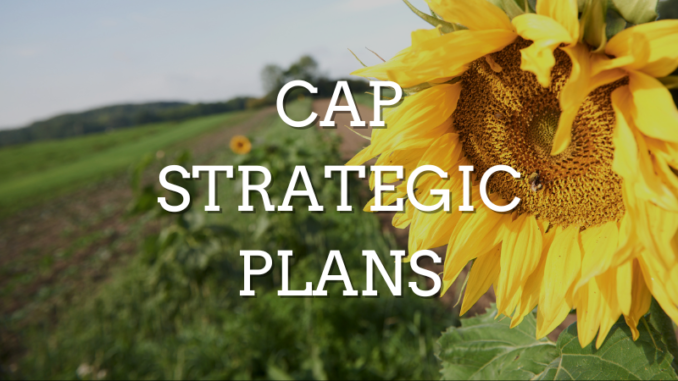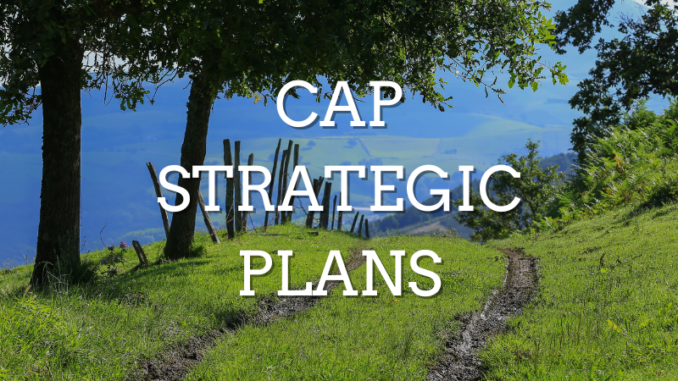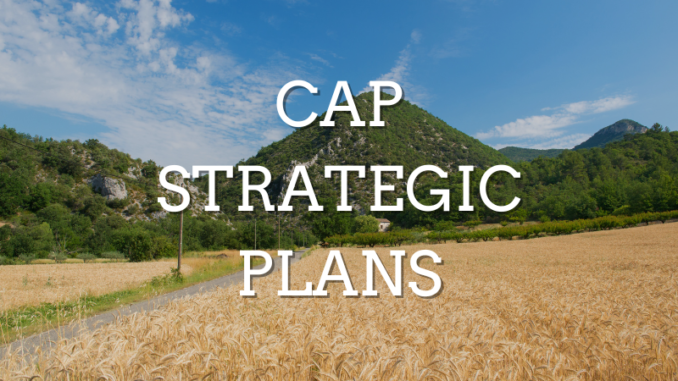A European, agroecological and integrated rural lens
ABOUT THE PROJECT
Since the 2019 Communication on the European Green Deal, ARC2020’s CAP Strategic Plans project has provided consistent analysis on the CAP reform post-2022 and the design, negotiation and approval of National CAP Strategic Plans. For the years to come, we want to bring the project to the next phase, in a new context. This is why and how.
Why do we need this critical action-research?
The long road to the CAP Strategic Plans began in 2018, when three CAP legislative proposals were presented by the Juncker Commission to the EU co-legislators. The road was political, but also very technical. Since then, the CAP reform has witnessed the gradual dilution of the initial environmental and social equity ambitions. The alignment with the Green Deal has yet to come. Meanwhile, the previous Commission’s technical apparatus and power control has been reshuffled and facelifted in the so-called European CAP Network, Long-Term Visions, and Horizon 2020 projects. Outside the CAP, things have changed too.
The war in Ukraine has fuelled a stale, polarised debate putting food security at odds with social and climate justice, distracting attention from trade speculation, unsustainable agri-trade systems, and inequalities. Food and production prices are soaring, while people’s purchasing power is going down. Wars have always been in the background of European policies, and were a factor when the CAP was agreed in Rome in 1958. But now there is a growing trend towards nationalisation, privatisation, and liberalisation of agri-food and trade policies.
The CAP, once a leading force for European integration and diversity, is now the arena of nationalisation and imbalances between regions. EU trade agreements, enforcement mechanisms, and state aid rules are being liberalised, fragmented, and poorly managed at EU level. The private sector is also finding new ways to shape the CAP and channel public funding towards financial investments in the agricultural sector, either via private insurance (risk management tools), corporate farming (investments), or food corporations (sectorial type of interventions and POs). Private funding in agriculture may be on the way to replace or downgrade CAP interventions, for example through the setting up of private carbon farming schemes and the use of Voluntary Carbon Markets.
The timeline ahead for CAP changes is quite tight. With the first CAP annual performance review and amendments, the 2024 European elections, and the 2025 Commission review of the policy in sight, we are all called on to very critically monitor these developments, and strategise around constructive alternatives in the short- and long-term. The future of CAP will improve only if agricultural, food, and rural matters are integrated coherently at multiple levels of governance in the EU and beyond.
How do we want to proceed?
- Starting from the basics, again: transparency and inclusivity in CAP implementation and evaluation process
With all CAP Strategic Plans now approved, much of focus is shifting from projections to real-time implementation and evaluation. The CAP Performance Monitoring and Evaluation Framework (PMEF) for the 2023-2027 period has a new outlook, but society at large is aware of the flaws and missed opportunities of this governance tool. New digital technologies continue to promise a modernised CAP and more accurate volumes of micro-data, but basic access to public statistics and information (such as on CAP beneficiaries) remains outdated in many Member States. New actors such as the National CAP Networks are in the best position to curate CAP information and make it accessible to the public audience and researchers. They can fact-check the Commission’s own analyses and the CAP Strategic Plans, bringing clarity and independent information for deeper analyses.
At the same time, with the CAP unfolding in the Member States, attention must shift from Brussels to national capitals, regions, and local areas. Will the interactions between various multi-level governance bodies bring added value and respect different views, such as those of official bodies (CAP monitoring committees, managing authorities, paying agencies, networks) and civil society groups, researchers, and small-medium enterprises? Is DG AGRI preparing the evidence basis and building information systems to carry out impartial and meaningful assessments of the CAP reform post-2022?
- Looking at the substance: environmental, economic, and social dimensions of the National Strategic Plans
The CAP Strategic Plans entered into force only in January 2023, with a number of elements containing novelties in terms of content and delivery: ecoschemes, new result-oriented AECM measures, sectorial type of interventions, insurance, social conditionalities. How is the design of new interventions working in practice? Are the plans meeting expectations in a new reality and world? International trade is shaking agri-food markets: how is the CAP responding with the CAP Strategic Plans, but also with EU decisions to improve farmers’ bargaining powers and crisis reserve?
- The big picture: Overlapping EU policies and implications for third countries
Thinking outside the CAP, how are the Plans interacting with new EU legislation on carbon farming, GMO deregulation, green claims, quality schemes, pesticides, unfair trade practices, sustainable food systems frameworks, and other topics? Many of those legislative proposals, such as the Sustainable Use of Plant Protection Products Regulation or the Certification for Carbon Removal framework, have overlapping goals with the CAP. They also often rely on the CAP to implement measures and finance them. But is the current CAP the right tool to support the Green Deal in its completion?
Finally, in a globalised world, decisions at the EU level can also have major consequences in developing regions. What are the implications of CAP SPs at international level, for instance in terms of food and feed trade, environment, workers’ rights, farming systems, rural development, cooperation and gender?
If you are interested in joining the team: welcome on board!
Latest articles
-
 There have been massive protests by farmers in many European countries in recent months. Depending on the country, different agricultural policy issues have played a role. Hannes Lorenzen, President of ARC2020, on the state and [...]
There have been massive protests by farmers in many European countries in recent months. Depending on the country, different agricultural policy issues have played a role. Hannes Lorenzen, President of ARC2020, on the state and [...] -
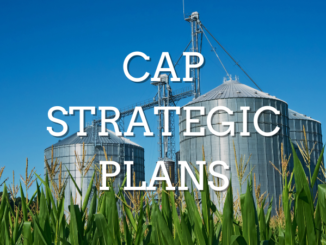 The project CAP Strategic Plans co-organised by ARC2020 with the Good Food Good Farming network is now completing its fourth year since its launch in 2020. 2023 can be seen as the end of a [...]
The project CAP Strategic Plans co-organised by ARC2020 with the Good Food Good Farming network is now completing its fourth year since its launch in 2020. 2023 can be seen as the end of a [...] -
 As has become very familiar in recent months, another opportunity to better integrate CAP and the pledges of the European Green Deal is being missed. Instead of watering down the ambition, this time the mainstream [...]
As has become very familiar in recent months, another opportunity to better integrate CAP and the pledges of the European Green Deal is being missed. Instead of watering down the ambition, this time the mainstream [...] -
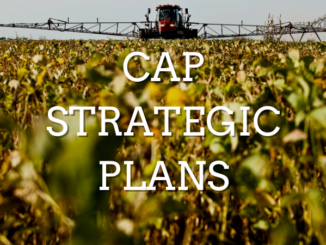 Are subsidies provided to farmers in the EU generating deforestation in Brazil? Or the decline of pastoral communities in Sahel? In this article, we shed light on the CAP’s implications beyond the EU, focusing on [...]
Are subsidies provided to farmers in the EU generating deforestation in Brazil? Or the decline of pastoral communities in Sahel? In this article, we shed light on the CAP’s implications beyond the EU, focusing on [...] -
 In a new CAP that largely maintains the status quo, social conditionality emerges as one of the few truly innovative elements. But is it going to be a real game-changer? This new legislative tool has [...]
In a new CAP that largely maintains the status quo, social conditionality emerges as one of the few truly innovative elements. But is it going to be a real game-changer? This new legislative tool has [...] -
 Did the Commission breach its own laws by approving the French CAP Strategic Plan? According to Collectif Nourrir and ClientEarth, it did! After their internal request for an internal review of the approval of the [...]
Did the Commission breach its own laws by approving the French CAP Strategic Plan? According to Collectif Nourrir and ClientEarth, it did! After their internal request for an internal review of the approval of the [...] -
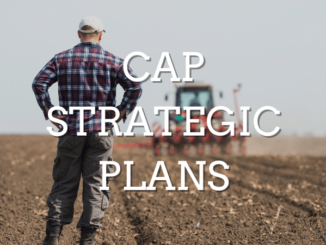 Now that the CAP Strategic Plans are approved and running, is the CAP really fairer? Read our report «“A Fairer CAP”, Really?». […]
Now that the CAP Strategic Plans are approved and running, is the CAP really fairer? Read our report «“A Fairer CAP”, Really?». […] -
 EU Agriculture is in crisis mode. And so is the CAP. For two years in a row, the CAP crisis reserve has been spent to help farmers deal with the adverse consequences of the invasion [...]
EU Agriculture is in crisis mode. And so is the CAP. For two years in a row, the CAP crisis reserve has been spent to help farmers deal with the adverse consequences of the invasion [...] -
 Looking at the CAP, 2022 and 2023 have been marked by multiple authorised derogations on environmental standards. Those derogations, claimed to be necessary to ensure food security in Europe, have been highly criticised by the [...]
Looking at the CAP, 2022 and 2023 have been marked by multiple authorised derogations on environmental standards. Those derogations, claimed to be necessary to ensure food security in Europe, have been highly criticised by the [...] -
 The struggle to cap and redistribute direct payments received by the largest landowners, to support smaller farms, thereby enabling a more divers and resilient rurality, has come up against the whole financial system in Denmark. [...]
The struggle to cap and redistribute direct payments received by the largest landowners, to support smaller farms, thereby enabling a more divers and resilient rurality, has come up against the whole financial system in Denmark. [...] -
 Carbon Farming is the new hype in agriculture. A proposal for a Certification Framework of Carbon Removals was proposed back in November by the Commission and there is a strong push by the Swedish presidency [...]
Carbon Farming is the new hype in agriculture. A proposal for a Certification Framework of Carbon Removals was proposed back in November by the Commission and there is a strong push by the Swedish presidency [...] -
 Although the CAP Strategic Plans have been approved and are now being implemented, they are not closed files. Once a year, amendments can be proposed by Member States and, under specific conditions, other adaptations can [...]
Although the CAP Strategic Plans have been approved and are now being implemented, they are not closed files. Once a year, amendments can be proposed by Member States and, under specific conditions, other adaptations can [...] -
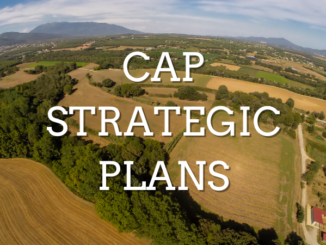 We present our proposal for an integrated Rural and Agricultural Policy. “Rural Europe Takes Action – No more business as usual” ends with an unwritten regulation: the #CAP of the future. So, what is it about [...]
We present our proposal for an integrated Rural and Agricultural Policy. “Rural Europe Takes Action – No more business as usual” ends with an unwritten regulation: the #CAP of the future. So, what is it about [...] -
 The German CAP Strategic Plan has the potential for an ambitious CAP 2023 to 2027. While the debate on the next CAP post-2027 is already starting, in this article we argue that the German government [...]
The German CAP Strategic Plan has the potential for an ambitious CAP 2023 to 2027. While the debate on the next CAP post-2027 is already starting, in this article we argue that the German government [...] -
 Our book “Rural Europe Takes Action – No more business as usual” ends with a mysterious unwritten regulation, the Common Agricultural Policy of the future. Only it is not. It is much broader than that. [...]
Our book “Rural Europe Takes Action – No more business as usual” ends with a mysterious unwritten regulation, the Common Agricultural Policy of the future. Only it is not. It is much broader than that. [...] -
 The new funding period of the Common Agricultural Policy has begun. The EU member states, including Germany, have all developed National Strategic Plans to implement the new EU requirements. However, as the following article shows, [...]
The new funding period of the Common Agricultural Policy has begun. The EU member states, including Germany, have all developed National Strategic Plans to implement the new EU requirements. However, as the following article shows, [...] -
 The Czech CAP Stragic Plan has now been approved by the European Commission. Agricultural associations had been protesting against the proposed 23% share of direct payments. Terezie Daňková, a Czech farmer from South Bohemia, helps [...]
The Czech CAP Stragic Plan has now been approved by the European Commission. Agricultural associations had been protesting against the proposed 23% share of direct payments. Terezie Daňková, a Czech farmer from South Bohemia, helps [...] -
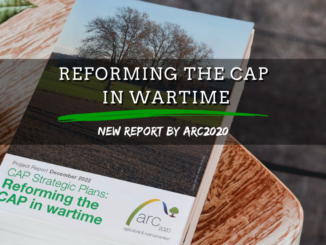 As the last CAP Strategic Plan (Netherlands) has been approved, we launch a report summarising the key aspects of the CAP Strategic Plans approval process that started a year ago. This report is a collection [...]
As the last CAP Strategic Plan (Netherlands) has been approved, we launch a report summarising the key aspects of the CAP Strategic Plans approval process that started a year ago. This report is a collection [...] -
 EU agri-food products protected by quality schemes can face counterfeiting and usurpations in third countries, resulting in significant economic losses for EU producers. The same can happen in the other direction, and with the expansion [...]
EU agri-food products protected by quality schemes can face counterfeiting and usurpations in third countries, resulting in significant economic losses for EU producers. The same can happen in the other direction, and with the expansion [...] -
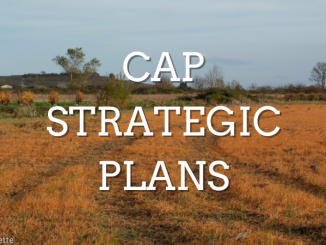 The European commission presented a new regulation on the sustainable use of plant protection products. This regulation is a long awaited response to the insufficient results of the Sustainable Use of Pesticide Directive (SUD) that [...]
The European commission presented a new regulation on the sustainable use of plant protection products. This regulation is a long awaited response to the insufficient results of the Sustainable Use of Pesticide Directive (SUD) that [...] -
 In two letters obtained by ARC2020, the Environment and Climate wings of the European Commission (DG ENV and DG CLIMA) point to an almost complete lack of effort by the national capitals to integrate any [...]
In two letters obtained by ARC2020, the Environment and Climate wings of the European Commission (DG ENV and DG CLIMA) point to an almost complete lack of effort by the national capitals to integrate any [...] -
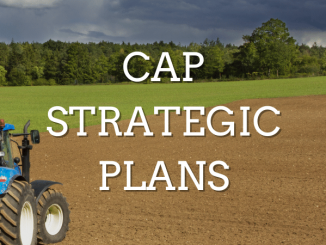 In a context of war and spiking food prices, a series of observation letters, meetings, and negotiations between the Commission and Member States are shaping the future national CAP Strategic Plans. Are these negotiations going [...]
In a context of war and spiking food prices, a series of observation letters, meetings, and negotiations between the Commission and Member States are shaping the future national CAP Strategic Plans. Are these negotiations going [...] -
 Here you’ll find the Observation Letter to Wallonia’s CAP Strategic Plan which ARC2020 has obtained. In no less than 210 points, the Commission exposes a lack of strategy towards healthy, sustainable and economically viable food [...]
Here you’ll find the Observation Letter to Wallonia’s CAP Strategic Plan which ARC2020 has obtained. In no less than 210 points, the Commission exposes a lack of strategy towards healthy, sustainable and economically viable food [...] -

CAP Strategic Plans and Food Security: Fallow Lands, Feeds, and Transitioning the Livestock Industry
The invasion of Ukraine by Russia has sparked a debate on food security in Europe. Here, we set things straight on the derogation to allow production on fallow land, analyse the state of grain production [...] -
 Trade liberalisation enforced by the WTO, World Bank, International Monetary Fund and several bilateral trade agreements largely contributed to the current economic instability in agriculture, but also to the climate and biodiversity crises. Family farmers [...]
Trade liberalisation enforced by the WTO, World Bank, International Monetary Fund and several bilateral trade agreements largely contributed to the current economic instability in agriculture, but also to the climate and biodiversity crises. Family farmers [...] -
 Why has the CAP been historically problematic for farmers’ economic sustainability, biodiversity and the environment, in the EU and the Global South? We explore historical choices regarding trade and CAP that led our agriculture towards [...]
Why has the CAP been historically problematic for farmers’ economic sustainability, biodiversity and the environment, in the EU and the Global South? We explore historical choices regarding trade and CAP that led our agriculture towards [...] -
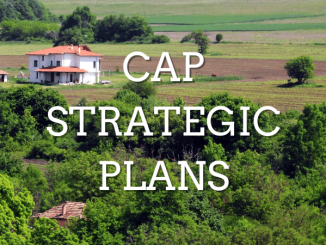 The Society for Territorial and Environmental Prosperity (STEP) believes that Bulgaria’s CAP Strategic Plan must be corrected in order to be in line with the objectives of the European Green Deal, the EU’s Biodiversity and [...]
The Society for Territorial and Environmental Prosperity (STEP) believes that Bulgaria’s CAP Strategic Plan must be corrected in order to be in line with the objectives of the European Green Deal, the EU’s Biodiversity and [...] -
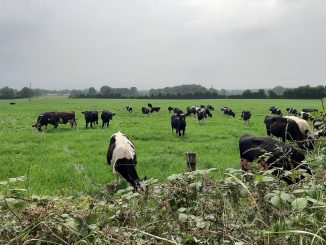 Changes in the CAP strategic Plan submitted by Ireland are “required”. In the Observation Letter sent to Ireland – which you can download below – there are a number of areas the European Commission has [...]
Changes in the CAP strategic Plan submitted by Ireland are “required”. In the Observation Letter sent to Ireland – which you can download below – there are a number of areas the European Commission has [...] -
 On March 31st, all 19 Member States that submitted their CAP Strategic Plans (CSPs) by the 1st January deadline received their awaited Observation Letters (OLs). In this article we discuss the implications of the Commission [...]
On March 31st, all 19 Member States that submitted their CAP Strategic Plans (CSPs) by the 1st January deadline received their awaited Observation Letters (OLs). In this article we discuss the implications of the Commission [...] -
 Soaring grain prices, alongside gas, oil, fertilizers and pesticides, have sparked an unexpected debate on food production in the EU. A dependent and completely overexposed agricultural system has brought with it fear of food insecurity. [...]
Soaring grain prices, alongside gas, oil, fertilizers and pesticides, have sparked an unexpected debate on food production in the EU. A dependent and completely overexposed agricultural system has brought with it fear of food insecurity. [...] -
 With the war in Ukraine, the discourse around the CAP has shifted towards approving unambitious, business-as-usual strategic plans that serve the interests of agri-industrial block and lobby groups. As French elections are only a few [...]
With the war in Ukraine, the discourse around the CAP has shifted towards approving unambitious, business-as-usual strategic plans that serve the interests of agri-industrial block and lobby groups. As French elections are only a few [...] -
 While one third of Member States missed the deadline for submitting national strategic plans for the CAP (CSP), we find Belgium (comprising Wallonia and Flanders), still seemingly bogged down in the last details of the [...]
While one third of Member States missed the deadline for submitting national strategic plans for the CAP (CSP), we find Belgium (comprising Wallonia and Flanders), still seemingly bogged down in the last details of the [...] -
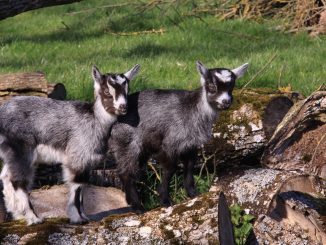 How has Ireland used the flexibility of the CAP legal framework post-2022 to design a fairer CAP Strategic Plan? A new policy analysis, researched and written by Matteo Metta for the Left group in the [...]
How has Ireland used the flexibility of the CAP legal framework post-2022 to design a fairer CAP Strategic Plan? A new policy analysis, researched and written by Matteo Metta for the Left group in the [...] -
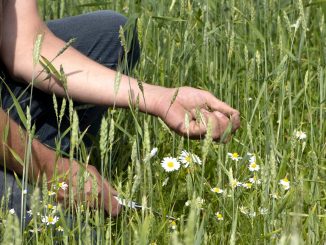 Today we launch a report on the CAP Strategic Plans process, as it has unfolded throughout 2021. The full document includes an overview, an analysis of the initial Commission recommendations, analyses of aspects of CAP [...]
Today we launch a report on the CAP Strategic Plans process, as it has unfolded throughout 2021. The full document includes an overview, an analysis of the initial Commission recommendations, analyses of aspects of CAP [...] -
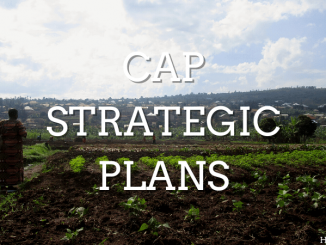 The development and diffusion of precision agriculture might speed up since fresh money could become available through eco-schemes under the new CAP Strategic Plans. How does the EU support precision agriculture and what does it [...]
The development and diffusion of precision agriculture might speed up since fresh money could become available through eco-schemes under the new CAP Strategic Plans. How does the EU support precision agriculture and what does it [...] -
 On 11-12 October 2021, the agri-ministers from all over the EU will be invited to share their views on design and approval of the CAP Strategic Plan, with emphasis on transparency and inclusion. With no [...]
On 11-12 October 2021, the agri-ministers from all over the EU will be invited to share their views on design and approval of the CAP Strategic Plan, with emphasis on transparency and inclusion. With no [...] -
 Cutting space for nature on farms, from its own proposed level of 5% to just 4%, is the most brutal of adjustments mooted by the Department of Agriculture, Food and the Marine (DAFM) in one [...]
Cutting space for nature on farms, from its own proposed level of 5% to just 4%, is the most brutal of adjustments mooted by the Department of Agriculture, Food and the Marine (DAFM) in one [...] -
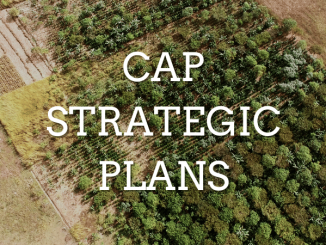 After more than 2 years of negotiations since June 2018, the three EU co-legislators found an agreement on the regulations for the future Common Agricultural Policy post-2022 (CAP). Much of the attention is now moving [...]
After more than 2 years of negotiations since June 2018, the three EU co-legislators found an agreement on the regulations for the future Common Agricultural Policy post-2022 (CAP). Much of the attention is now moving [...] -
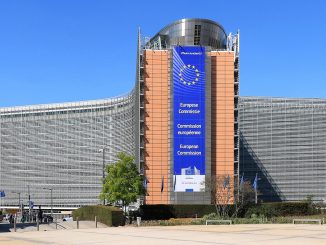 The design and approval of the future 27 CAP Strategic Plans are key moments to demonstrate the true commitment towards a fairer, greener, and rural-proofed CAP reform. The European Commissioner for Agriculture, Mr Wojciechowski, promised [...]
The design and approval of the future 27 CAP Strategic Plans are key moments to demonstrate the true commitment towards a fairer, greener, and rural-proofed CAP reform. The European Commissioner for Agriculture, Mr Wojciechowski, promised [...] -
 The Common Market Organization (CMO), insufficient grazing subsidies and eco-schemes. An explainer about how EU dairy exports could increase rural unemployment and food poverty in Japan. […]
The Common Market Organization (CMO), insufficient grazing subsidies and eco-schemes. An explainer about how EU dairy exports could increase rural unemployment and food poverty in Japan. […] -
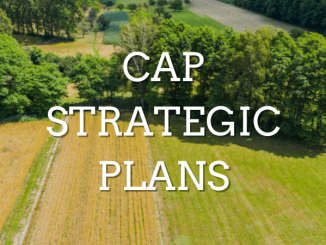 As the negotiations start to come to a close, this article focuses on the remaining fair and green considerations. We shed light on the state of play in the CAP post 2022 inter-institutional negotiations, particularly [...]
As the negotiations start to come to a close, this article focuses on the remaining fair and green considerations. We shed light on the state of play in the CAP post 2022 inter-institutional negotiations, particularly [...] -
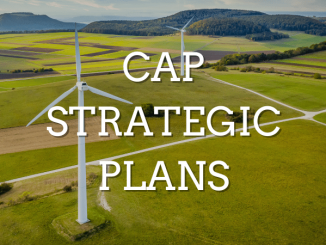 In March 2021, the German Agriculture Ministers’ Conference and the Federal Ministry for Food and Agriculture agreed on important cornerstones for the country’s CAP Strategic Plan. In his preliminary assessment, Sebastian Lackner shows that while [...]
In March 2021, the German Agriculture Ministers’ Conference and the Federal Ministry for Food and Agriculture agreed on important cornerstones for the country’s CAP Strategic Plan. In his preliminary assessment, Sebastian Lackner shows that while [...] -
 The shift from compliance towards a result-oriented delivery model was highly debated in the super trilateral meeting on the 26 March 2021. Have the EU co-legislators ensured that the CAP Strategic Plans are result-oriented, while [...]
The shift from compliance towards a result-oriented delivery model was highly debated in the super trilateral meeting on the 26 March 2021. Have the EU co-legislators ensured that the CAP Strategic Plans are result-oriented, while [...] -
 On December 18, 2020, the Polish Ministry of Agriculture and Rural Development published the first version of the future National CAP Strategic Plan for public consultation. Almost 4,000 comments were received in response. Here is [...]
On December 18, 2020, the Polish Ministry of Agriculture and Rural Development published the first version of the future National CAP Strategic Plan for public consultation. Almost 4,000 comments were received in response. Here is [...] -
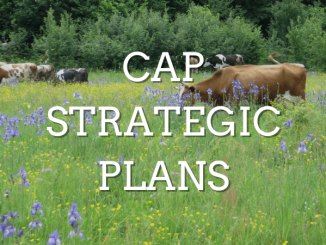 Bulgaria has lost around 40% of its High Nature Value farmlands since 2007. Rather than having an in-depth analysis of the reasons behind this negative trend, the Ministry of Agriculture proposed deletion of all existing [...]
Bulgaria has lost around 40% of its High Nature Value farmlands since 2007. Rather than having an in-depth analysis of the reasons behind this negative trend, the Ministry of Agriculture proposed deletion of all existing [...] -
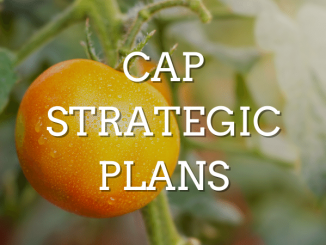 While the co-legislators and the trilogue negotiations at EU level continue to derail the future CAP away from the necessary reforms, in December 2020, the European Commission issued EU-wide and 27 country-specific Staff Working Documents [...]
While the co-legislators and the trilogue negotiations at EU level continue to derail the future CAP away from the necessary reforms, in December 2020, the European Commission issued EU-wide and 27 country-specific Staff Working Documents [...] -
 Recommendations published by the German Ministry for the Environment echo fears that the CAP reform might not align with the environmental ambitions of the European Green Deal, and urge that regardless of the outcomes of [...]
Recommendations published by the German Ministry for the Environment echo fears that the CAP reform might not align with the environmental ambitions of the European Green Deal, and urge that regardless of the outcomes of [...] -
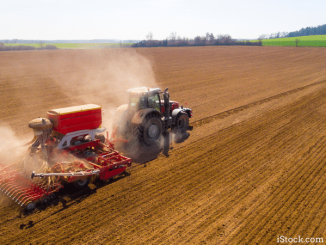 “Integration between the CAP reform and the European Green Deal is poor or unrealised.” That’s according to a new policy analysis, written by ARC2020’s analyst Matteo Metta and Agricultural Economist Dr. Sebastian Lakner. Commissioned by MEP [...]
“Integration between the CAP reform and the European Green Deal is poor or unrealised.” That’s according to a new policy analysis, written by ARC2020’s analyst Matteo Metta and Agricultural Economist Dr. Sebastian Lakner. Commissioned by MEP [...] -
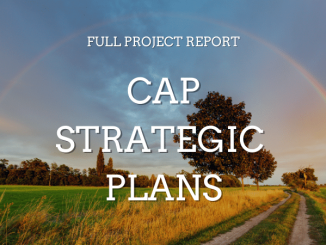 Throughout 2020, ARC2020’s Matteo Metta, along with Hans Wetzels and Rosa Melina Armijo Campos have worked on the Common Agriculture Policy, CAP, specifically the unfolding of the CAP Strategic Plans process. This work has formed [...]
Throughout 2020, ARC2020’s Matteo Metta, along with Hans Wetzels and Rosa Melina Armijo Campos have worked on the Common Agriculture Policy, CAP, specifically the unfolding of the CAP Strategic Plans process. This work has formed [...] -
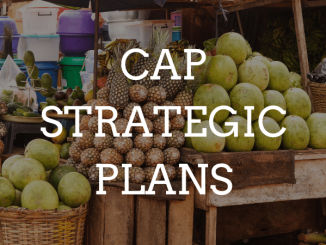 The EU exports large quantities of milk and poultry to Western Africa. An even bigger focus on efficient commodity production in Europe might seriously hamper the status of Ghana as an emerging economy. […]
The EU exports large quantities of milk and poultry to Western Africa. An even bigger focus on efficient commodity production in Europe might seriously hamper the status of Ghana as an emerging economy. […]


